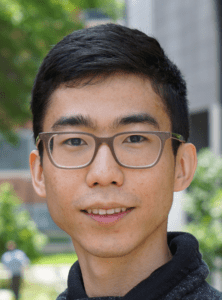Posted By: HGG Advances
Each month, the editors of Human Genetics and Genomics Advances interview an early-career researcher who has published work in the journal. This month we check in with Tianyu Zhang to discuss his paper “Evaluating and improving health equity and fairness of polygenic scores.”

HGGA: What motivated you to start working on this project?
TZ: As a researcher with biostatistics training, I feel it is crucial to get my hands on real-world data to validate the efficiency of many methods that people develop on paper or whiteboards. My advisor kindly offered me this opportunity!
HGGA: What about this paper/project most excites you?
TZ: This is my first project on transfer-learning type problems, which as a general field has been experiencing great growth recently. I am also excited to see that a direct modification of standard high-dimensional statistics tools, such as Lasso, is very powerful at the task compared with some much more intricate alternatives.
HGGA: What do you hope is the impact of this work on the human genetics community?
TZ: The main goal of this work is to improve the disease-risk prediction accuracy for underrepresented populations. In this work, we studied the performance of the proposed methods on a Yoruba-ancestral population data set. I hope our method can promote the fairness and equity of current polygenic score predictors.
HGGA: What are some of the biggest challenges you’ve faced as a young scientist?
TZ: Coming up with ideas that can lead to valid research projects (plural!). Shifting from a student mindset to a faculty’s is in no way easy for many people, including myself. What are impactful problems? What are the new scientific problems that need to be formulated into math language? These are all very general and big challenges I need to overcome.
HGGA: And for fun, what is one of the most fascinating things in genetics you’ve learned about in the past year or so?
TZ: Many people are interested in the common effect on the downstream gene expression of multiple CRISPR mutations. I feel this is a question that can be better engaged and many research opportunities are available (both theoretical and in practice).
